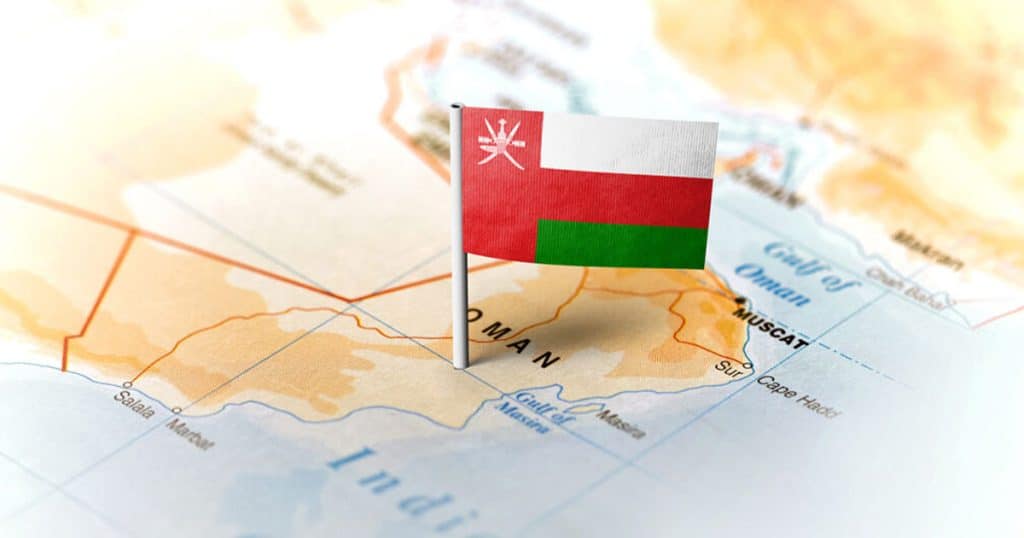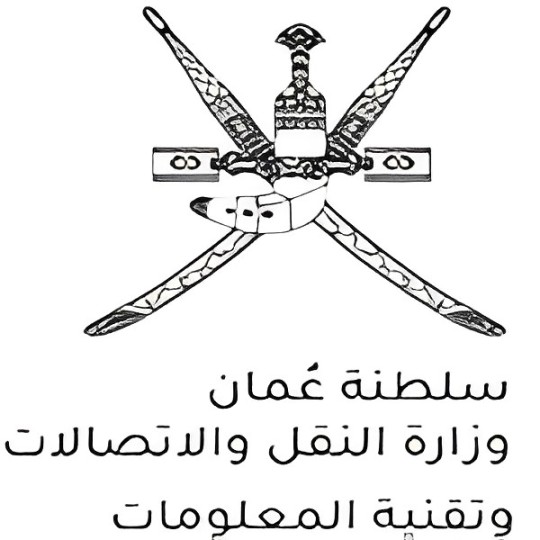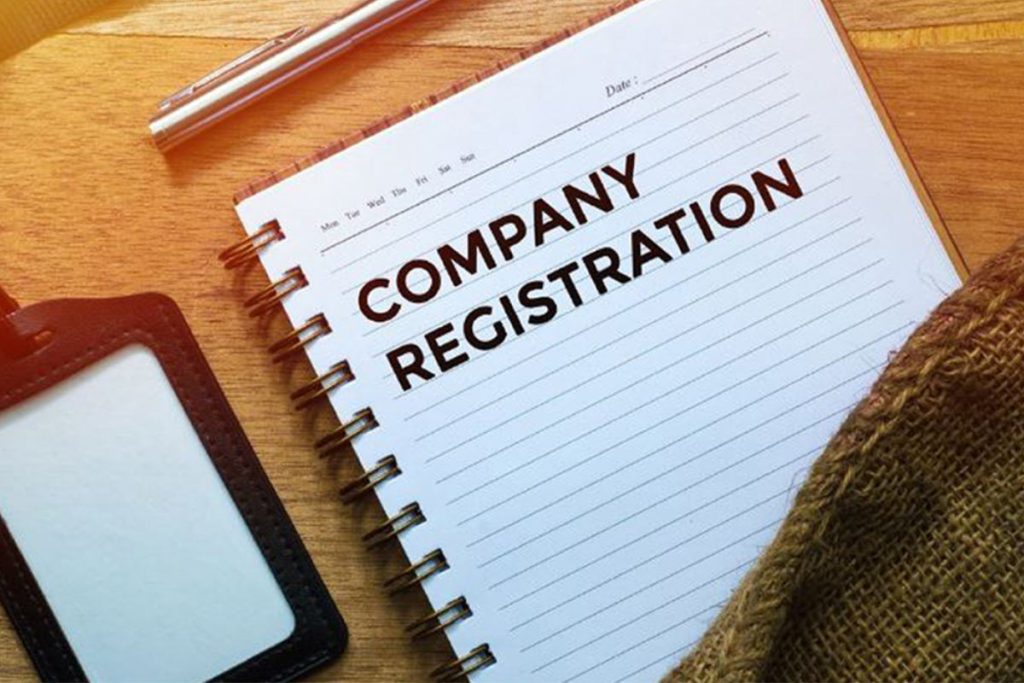+968 9596 3381
Phone Number
[email protected]
Email Address
Mon - Thu: 8:00 - 5:00
Online store always open
Phone Number
Email Address
Online store always open
WhatsApp Us Today
Drop Us an Email Today
Google Map Location
Saturday to Thursday

Introduction
Why Oman’s Free Zones Attract Global Investors
Key Benefits of Setting Up in Omani Free Zones
Major Free Zones in Oman
Sohar Free Zone
Salalah Free Zone
Duqm SEZ (Special Economic Zone)
Al Mazunah Free Zone
Factors to Consider When Choosing a Free Zone
Industry-Specific Opportunities in Each Free Zone
Manufacturing & Heavy Industries
Logistics & Distribution
Oil & Gas & Petrochemicals
Technology & ICT
Tourism & Services
Licensing Requirements in Omani Free Zones
Tax Incentives and Customs Benefits
Ownership Rules: Free Zones vs Mainland Oman
Documentation Required for Free Zone Setup
Registration Timelines & Process
Omanization & Employment Regulations in Free Zones
Infrastructure & Connectivity of Oman’s Free Zones
Comparing Oman’s Free Zones with UAE Free Zones
Cost of Setting Up in Different Free Zones
Case Study: Sohar vs. Duqm for Manufacturing Investors
Risks & Challenges of Free Zone Setup
Future Outlook of Oman’s Free Zones (2025 & Beyond)
Decision Framework: How to Choose the Right Free Zone
Conclusion
Oman has positioned itself as a regional hub for investment through its strategically located free zones, offering attractive incentives for international businesses. Whether you’re in manufacturing, logistics, petrochemicals, or services, choosing the right free zone in Oman is one of the most important steps for success.
This guide breaks down Oman’s major free zones, their industry focus, licensing requirements, and incentives, helping you make the right decision for your business.
Strategic Location: At the crossroads of Asia, Africa, and the Middle East.
Access to Deep-Sea Ports: Sohar, Duqm, and Salalah provide world-class port facilities.
Trade Agreements: Oman is part of GCC, WTO, and has FTAs with multiple countries.
Government Support: Policies aligned with Oman Vision 2040 for diversification.
Flexibility: 100% foreign ownership, profit repatriation, and long-term leases.
Tax holidays (up to 30 years)
Zero customs duty on imports & exports within the zone
No minimum capital requirement in most cases
Streamlined business setup compared to mainland licensing
Full foreign ownership rights
Access to skilled and cost-competitive labor force
Focus on logistics, metals, steel, and food processing.
Linked to Sohar Port with excellent shipping connectivity.
Ideal for logistics, petrochemicals, and manufacturing.
Strategic access to East Africa and Indian Ocean trade routes.
One of the largest SEZs in the Middle East.
Focus on oil & gas, heavy industries, shipbuilding, and fisheries.
Integrated with Duqm Port and dry dock facilities.
Positioned on the Oman–Yemen border.
Best for trading, light manufacturing, and re-export activities.
Gateway to Yemeni and African markets.
Industry focus: Some zones specialize in logistics, others in heavy industry.
Proximity to raw materials or markets.
Infrastructure availability: Ports, airports, highways.
Cost of licensing & setup.
Omanization rules: Workforce localization percentages.
Ease of scalability and expansion.
Manufacturing & Heavy Industries: Duqm & Sohar
Logistics & Distribution: Salalah & Sohar
Oil & Gas & Petrochemicals: Duqm & Salalah
Technology & ICT: Sohar emerging hub
Tourism & Services: Duqm and Salalah
Business registration application
Company documents (MoA, AoA, incorporation certificate)
Lease agreement with free zone authority
Environmental clearance (if required)
Trade license issuance
Corporate tax exemption for up to 30 years.
No customs duty on imports into the zone.
Re-export benefits for global trade.
| Feature | Free Zone | Mainland |
|---|---|---|
| Foreign ownership | 100% allowed | Limited in some sectors |
| Corporate tax | 0% (holiday) | 15% standard rate |
| Customs duty | Exempted | 5% |
| Repatriation of profits | 100% | Subject to regulations |







Passport copies of shareholders
Company profile & business plan
Board resolution for Oman entity
Lease agreement with free zone authority
Application submission → 1–2 weeks
Authority approval → 2–4 weeks
License issuance → Within 30 days
Omanization requirements are more flexible in free zones than mainland.
Key industries may negotiate reduced Omanization percentages.
Sohar: Gateway to GCC by road.
Salalah: Access to East Africa & Asia.
Duqm: Multimodal (sea, road, air) with mega industrial complexes.
Al Mazunah: Land trade hub for Yemen & Africa.
Oman offers lower setup costs than UAE.
Longer tax holidays (up to 30 years vs. UAE’s 15–20).
Larger industrial land availability in Duqm.
Sohar: Starting from OMR 3,500 annually.
Salalah: From OMR 4,000 annually.
Duqm: Higher initial costs due to scale but more incentives.
Al Mazunah: Lowest cost option for traders.
| Factor | Sohar Free Zone | Duqm SEZ |
|---|---|---|
| Industry focus | Metals, logistics | Oil & gas, heavy industries |
| Infrastructure | Proximity to Sohar Port | Duqm Port + dry dock |
| Cost | Moderate | Higher upfront, more incentives |
| Scalability | Medium | High, mega projects |
Let us handle your company registration, office setup, and licensing to ensure a seamless process.
Bureaucratic delays in certain approvals.
Higher Omanization costs if workforce not available locally.
Infrastructure in newer zones still developing.
Duqm is expected to become a regional energy hub.
Sohar expanding its metals and logistics clusters.
Salalah positioning as a transshipment hub for Africa and Asia.
Identify your industry sector.
Match with zone specialization.
Consider infrastructure proximity.
Compare costs & incentives.
Evaluate long-term scalability.
Oman’s free zones present unique opportunities across industries, from logistics in Salalah to energy in Duqm. By aligning your business goals with the right free zone, investors can maximize benefits, streamline operations, and secure long-term growth in Oman’s evolving economy.
Q1: What are the main free zones in Oman?
A: Sohar, Salalah, Duqm, and Al Mazunah.
Q2: Can foreign investors own 100% in Omani free zones?
A: Yes, 100% foreign ownership is allowed.
Q3: How long are tax holidays in free zones?
A: Up to 30 years.
Q4: Do free zones offer customs exemptions?
A: Yes, no customs duty on imports & exports within the zone.
Q5: What industries suit Duqm SEZ?
A: Oil & gas, shipbuilding, fisheries, and heavy industries.
Q6: Which free zone is best for logistics?
A: Salalah Free Zone.
Q7: Are Omanization requirements applicable in free zones?
A: Yes, but they are more flexible.
Q8: How long does free zone company registration take?
A: Around 30 days.
Q9: What is the cheapest free zone in Oman?
A: Al Mazunah Free Zone.
Q10: Can I repatriate profits?
A: Yes, 100% repatriation is allowed.
Q11: Do I need a local partner in free zones?
A: No, unlike mainland companies.
Q12: Which free zone is best for metals manufacturing?
A: Sohar Free Zone.
Q13: Do free zones allow service-based companies?
A: Yes, depending on license type.
Q14: What licenses are available in free zones?
A: Trading, manufacturing, logistics, and service licenses.
Q15: Are free zones connected to major ports?
A: Yes, each free zone is linked to a strategic port.
Q16: Which free zone is best for African market access?
A: Salalah & Al Mazunah.
Q17: Is Duqm suitable for small businesses?
A: Duqm targets large-scale industries, so costs may be high for SMEs.
Q18: Which zone is best for food processing industries?
A: Sohar Free Zone.
Q19: Can I convert a free zone company into a mainland company?
A: Yes, subject to approvals.
Q20: Which free zone has the longest tax holiday?
A: Duqm SEZ (up to 30 years).




Oman encourages foreign investment across a wide range of sectors. Choosing the right industry can streamline both business approval and residency visa eligibility.
Top Sectors for Investment-Based Residency in 2025:
Tourism & Hospitality: Establish hotels, desert camps, or travel services aligned with Vision 2040 tourism growth.
Logistics & Transportation: Leverage Oman’s location to operate cargo, warehousing, or port services.
Renewable Energy: Solar and wind energy startups receive strong government backing and incentives.
Technology & IT Services: Ideal for app development, SaaS, e-commerce, and fintech.
Education & Training: Open institutes, tutoring centers, or skill development facilities in partnership with local bodies.
Healthcare & Wellness: Clinics, diagnostics labs, and wellness centers are in growing demand.
Each of these sectors has its own licensing pathway, and many qualify for foreign ownership exemptions.
Residency via business investment is allowed in both mainland Oman and designated free zones, though their benefits differ.
Direct access to local market
Wider sector coverage
Eligible for all visa types
0% corporate tax for a limited period
Full repatriation of profits
100% foreign ownership
Dedicated infrastructure and customs benefits
However, not all free zone businesses qualify for long-term residency, so careful planning is required.
Investor residency visas are typically issued for 2 to 10 years, depending on the investment type and visa class. Here’s how to ensure smooth renewals:
1. Maintain Active Business Operations
Dormant or non-operational companies may lead to rejection.
2. Renew All Business Licenses on Time
Delays in commercial registration (CR) or tax filings can affect visa status.
3. Maintain Minimum Capital & Shareholding
Any drop below the qualifying investment threshold may void your eligibility.
4. Submit Annual Audited Financials
Especially relevant for Golden Visa holders or companies with employees.
Oman allows long-term residency through both real estate ownership and direct business investment.
| Factor | Business Investment | Real Estate Ownership |
|---|---|---|
| Residency Duration | 2–10 years | 5–10 years |
| Eligibility for Employees | Yes (under your company) | No |
| Control Over Operations | Full business ownership | Property only |
| Income Potential | High (profits, contracts) | Rental yield |
👉 For entrepreneurs and job creators, business investment offers more flexibility, while real estate is better for passive investors.
1. Delayed Security Clearance
Solution: Begin documentation early and avoid errors in name/passport submissions.
2. Commercial Activity Restrictions
Solution: Verify sector eligibility with MOCIIP before incorporation.
3. Difficulty Opening Bank Accounts
Solution: Work with local business consultants who can guide you through preferred banking channels.
4. Lack of Office Space
Solution: Consider virtual or co-working options approved by the Ministry.
5. Visa Application Rejection
Solution: Ensure proper translation, attestation, and compliance at each step; consult legal advisors if necessary.
Relocation involves not only the legal process but also adjusting to life in a new country. Here’s what investors should plan:
Housing: Residential properties are widely available in Muscat, Sohar, and Salalah.
Schooling: Reputed international schools (British, Indian, IB) for expat children.
Transport: Private vehicles are common; taxis and limited public transport in major cities.
Healthcare: Access to private hospitals with expat-friendly services.
Lifestyle: Calm, family-oriented environment with low crime and high quality of life.
While Oman has no personal income tax, businesses are subject to certain obligations:
Corporate Tax: 15% flat rate on profits
VAT: 5% applicable on most goods and services
Withholding Tax: 10% on certain cross-border payments
Foreign investors must register with the Oman Tax Authority and file annual returns. Tax compliance directly impacts visa renewals and business continuity.
| Feature | Standard Investor Visa | Golden Visa |
|---|---|---|
| Investment Required | OMR 20,000 – OMR 50,000 | OMR 250,000+ |
| Duration | 2–5 years | 5–10 years |
| Fast Track Processing | No | Yes |
| Real Estate Option | Not applicable | Available |
| Access to Government Deals | Limited | Broader participation possible |
If you’re looking to settle long-term with minimal visa renewals and expanded rights, Golden Visa is your best option.
Once your business is operational, you may hire staff and sponsor employee visas under your company:
Steps to Sponsor Employees:
Register your company with the Ministry of Labour
Apply for a Labour Clearance for each job title
Process visas via the Royal Oman Police
Issue contracts and maintain payroll compliance
Ensure annual labor card and insurance renewal
This is a major benefit of investment-based residency, as it allows entrepreneurs to build and scale their team directly.
Choosing the wrong business structure for your sector
Failing to maintain minimum capital in your corporate account
Attempting to work under a tourist visa while awaiting business formation
Using a PO box as your only registered address
Not translating or notarizing documents as per Omani law
✅ Pro Tip: Work with local specialists to ensure you’re not overlooking any regulatory nuance — especially in sectors like finance, tech, or real estate.


At setupinoman, we specialize in assisting businesses with establishing their presence in Oman. Our services include:
Business Registration & Licensing – Handling all MoCIIP applications and approvals.
Legal Documentation & Compliance – Ensuring smooth document translations and notarization.
Banking & Office Setup – Helping businesses secure bank accounts and office leases.
Visa & Employee Services – Managing work permits and Omanization requirements.
What is the minimum investment required to qualify for a residency visa in Oman?
The minimum investment typically starts from OMR 20,000 for standard investor visas. However, the Golden Visa program requires investments starting from OMR 250,000.
Can I own 100% of my business in Oman as a foreign investor?
Yes, Oman allows 100% foreign ownership in most sectors, especially under the Foreign Capital Investment Law. Some regulated sectors may require local participation.
Is real estate investment enough to obtain a residency visa in Oman?
Yes, under the Golden Visa category, purchasing property worth at least OMR 250,000 can qualify you for long-term residency.
What is the difference between the Golden Visa and the Standard Investor Visa?
Golden Visas offer longer residency terms (5–10 years), faster processing, and broader eligibility, while Standard Investor Visas require lower investment but shorter duration and renewals.
How long does the investor visa process take?
On average, it takes 4 to 8 weeks, depending on security clearance, company registration, and documentation accuracy.
Can I apply for residency before launching my business?
You must complete company registration and capital deposit before applying for the residency visa under the business investor category.
Is it necessary to open a corporate bank account in Oman for this process?
Yes, you need to deposit the minimum share capital into a corporate account to receive the capital deposit certificate, which is essential for visa processing.
Are there any age or nationality restrictions for investor visas?
There are no age restrictions, and citizens from most countries are eligible, although background checks and financial verification are required.
Do I need a physical office in Oman for my business registration?
Yes, a registered office address is mandatory — this can be a virtual office, shared workspace, or physical premises, depending on your business type.
What types of businesses are best for investment-based residency?
Tourism, tech, healthcare, logistics, real estate development, and manufacturing are some of the most attractive sectors for foreign investors.
Is free zone investment also eligible for residency visas?
Yes, businesses established in Oman’s free zones like Duqm or Salalah can qualify, though some limitations apply based on visa type and activity scope.
Can I bring my family with me under an investor visa?
Yes, investor visa holders can sponsor family members including spouse and children, subject to documentation and proof of income.
What are the key documents required for an investor visa application?
Passport copies, security clearance, MOA, business license, capital deposit certificate, tenancy contract, and recent photographs are commonly required.
Do I need to hire local employees?
While not mandatory in all cases, certain sectors may require a minimum Omanization rate to qualify for full operational licensing and staff visa issuance.
What happens if I close my company after receiving the residency visa?
Your visa may be cancelled unless you transfer your sponsorship or obtain a different qualifying residency basis (e.g., real estate or employment).
How long is the investor visa valid?
Standard visas are issued for 2–5 years and renewable; Golden Visas are valid for 5 or 10 years, depending on the investment category.
Can I operate multiple businesses under one investor visa?
Yes, but you must ensure each entity is properly registered, and you hold a qualifying ownership percentage in each.
Are there any tax advantages for foreign investors?
Oman offers no personal income tax and competitive corporate tax rates (15%). Free zones also offer tax holidays for up to 10 years.
Can I change business activities after obtaining a visa?
Yes, but you must update your commercial registration and possibly re-obtain approvals or licenses depending on the new activity.
Is a local sponsor required for mainland businesses?
Not anymore in most sectors. Since the law change in 2020, most businesses can be 100% foreign-owned without requiring a local partner.
How do I maintain my visa status if I spend time abroad?
Investor visas typically allow you to spend time abroad, but extended absence (6+ months) may affect renewal or validity, unless explained.
Are digital or online businesses eligible?
Yes, tech and e-commerce businesses are highly encouraged and eligible for both investor and long-term residency options.
Do I need to show ongoing revenue to maintain the visa?
Not always, but inactivity or lack of compliance may risk rejection during renewal. Annual filings and proof of operation are recommended.
Can I apply for residency through an existing business I acquire?
Yes, provided you meet ownership thresholds and the business is compliant with all legal, tax, and licensing requirements.
What is the role of the Oman Investment Authority in this process?
OIA supports large-scale strategic investments, especially in sectors aligned with Vision 2040. Smaller businesses work mainly with MOCIIP and ROP.
Is the visa tied to one company or can I invest in multiple?
You can invest in multiple companies, but your primary residency visa will be tied to the company where you have majority stake or initial approval.
Do I need health insurance for the investor visa?
Yes, valid health insurance is a prerequisite during visa application and renewal processes.
How much capital is required for the Golden Visa through real estate?
You must invest at least OMR 250,000 in approved properties; for 10-year visas, the amount increases to OMR 500,000 or more.
What is the role of the Royal Oman Police (ROP) in this process?
ROP handles visa issuance, background verification, residency cards, and security clearances.
Can I get citizenship through business investment in Oman?
Currently, Oman does not offer direct citizenship-by-investment programs. However, long-term visa holders may be eligible for permanent residency or naturalization under exceptional circumstances.
Fill out our quick and easy contact form below. Briefly tell us about your vision and goals, and we’ll be in touch shortly to discuss a personalized plan for your success.
Al-Khuwair, Muscat, Sultanate of Oman